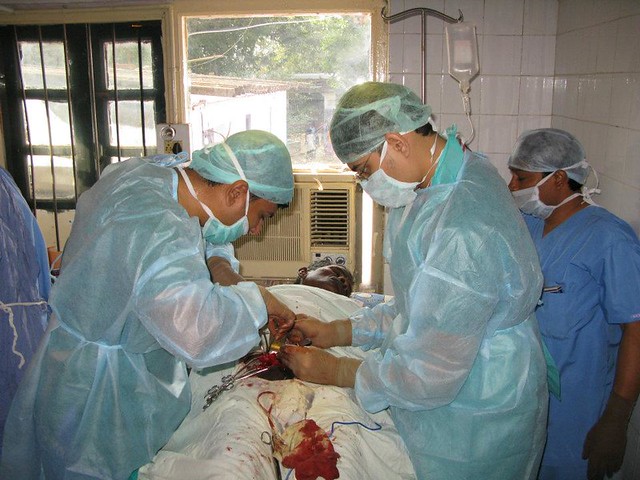 .
.Poorer health of surgery patients on Medicaid may alter Law Bottom LineWASHINGTON - surgery patients from Medicaid come to the hospital in poor health , experience more complications , stay longer and cost more , than patients with private insurance , a new study has foundThe study, by researchers at the University of Michigan , a preview of what to expect millions of uninsured people under the Affordable Care Act offer qualify for Medicaid.
Although Medicaid patients in the study were generally younger than the privately insured patients , they were twice as likely to smoke and had higher rates of conditions that made surgery more risky. These conditions, which may arise habits from years of poor health , are diabetes , lung disease and blood vessel occlusion .
The study, published this month in the journal JAMA surgery, analyzed data on nearly 14,000 patients , the operations at 52 hospitals in Michigan by July 2012 had until June 2013.Read the main storyRelated Coverage
News Analysis : Medicine of the top earners are not the MDsMAY 17, 2014
Dr. Darrell A. Campbell Jr., the chief doctor of the University of Michigan Health System, who led the study , said: " The Medicaid patients were sicker , and they have not responded well after surgery, you stay longer in the hospital, and . that increases the cost. "
Michigan has just expanded Medicaid, and almost half a million people may have to be eligible for coverage. Since the state began the applications on April 1 have enrolled more than 237,000 people .
" We support the expansion of Medicaid, because it means that we get the patient to the medical care and in optimal shape for surgery ," Dr. Campbell said in an interview . " As a strong smoking predisposes you to get pneumonia after an operation. For a diabetic when the blood sugar out of control increases , the chances of wound infection after surgery. When we encounter these questions before surgery, we can imagine the problems that we see after an operation to cut. "
Dr. Campbell is also the director of the Michigan Surgical Quality Collaborative, which collected and analyzed the data.
About half of the states have expanded Medicaid and the White House push others to do so , noting that the federal government , the cost to pay up to 2016 in later years and at least 90 percent.
The Michigan researchers reported these results :
■ In the month after her surgery, Medicaid patients had two-thirds more complications and were more than twice as likely to die compared with those of private insurance .
■ Medicaid patients usually requires additional time in the hospital - on average three days instead of two - and were more likely to go home to return from surgery.
■ Medicaid patients " had more emergency operations and uses 50 percent more hospital resources than patients with other types of insurance. "
The results have a financial impact on hospitals, which are often paid less than the full cost of care for Medicaid patients .
Kara Gavin , a spokeswoman for the University of Michigan Health System, said that many people who were previously received charity care now enrolled in Medicaid.
Previous studies show that many people use the new cover to get medical care for conditions that went untreated while they were not insured.
The new health care law reduces special payments to hospitals serving large numbers of low-income patients , on the assumption that many of the uninsured will gain coverage through Medicaid.
But hospital executives are not sure that the savings will occur. Dr. Campbell said the cuts could create serious financial problems for hospitals treating a large number of Medicaid patients .
Recent research in other states has posed similar questions.
In Oregon , the researchers examined what happened after the state expanded Medicaid , people selected through a lottery . Contrary to expectations , the , the cover won more visits to hospital emergency rooms , even for conditions that could be treated by primary care physicians in the community.
Obama administration said that it is planning a public education campaign to teach people how to use their new cover , and a major goal is to prevent the use of emergency rooms as a source of routine care .